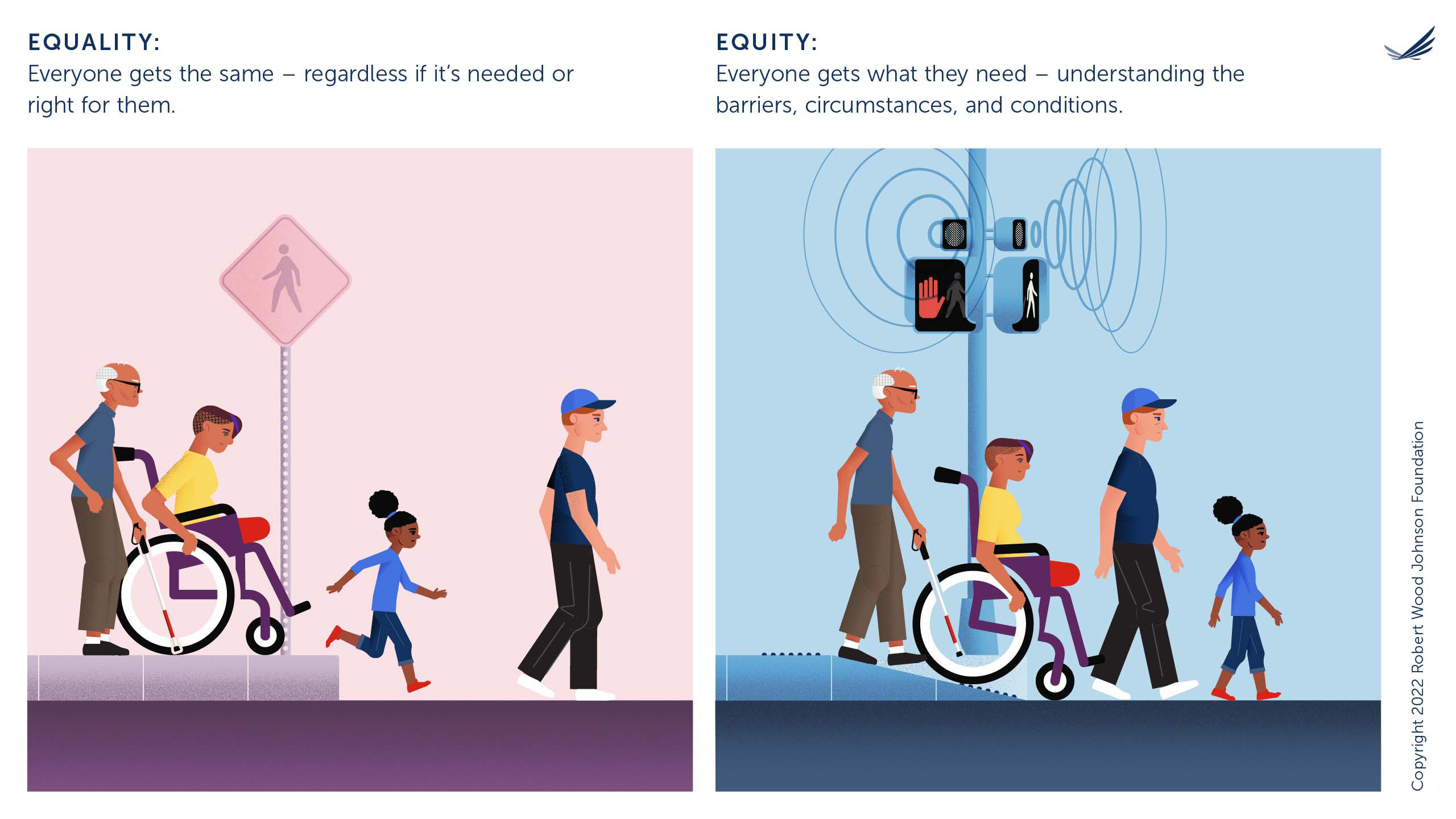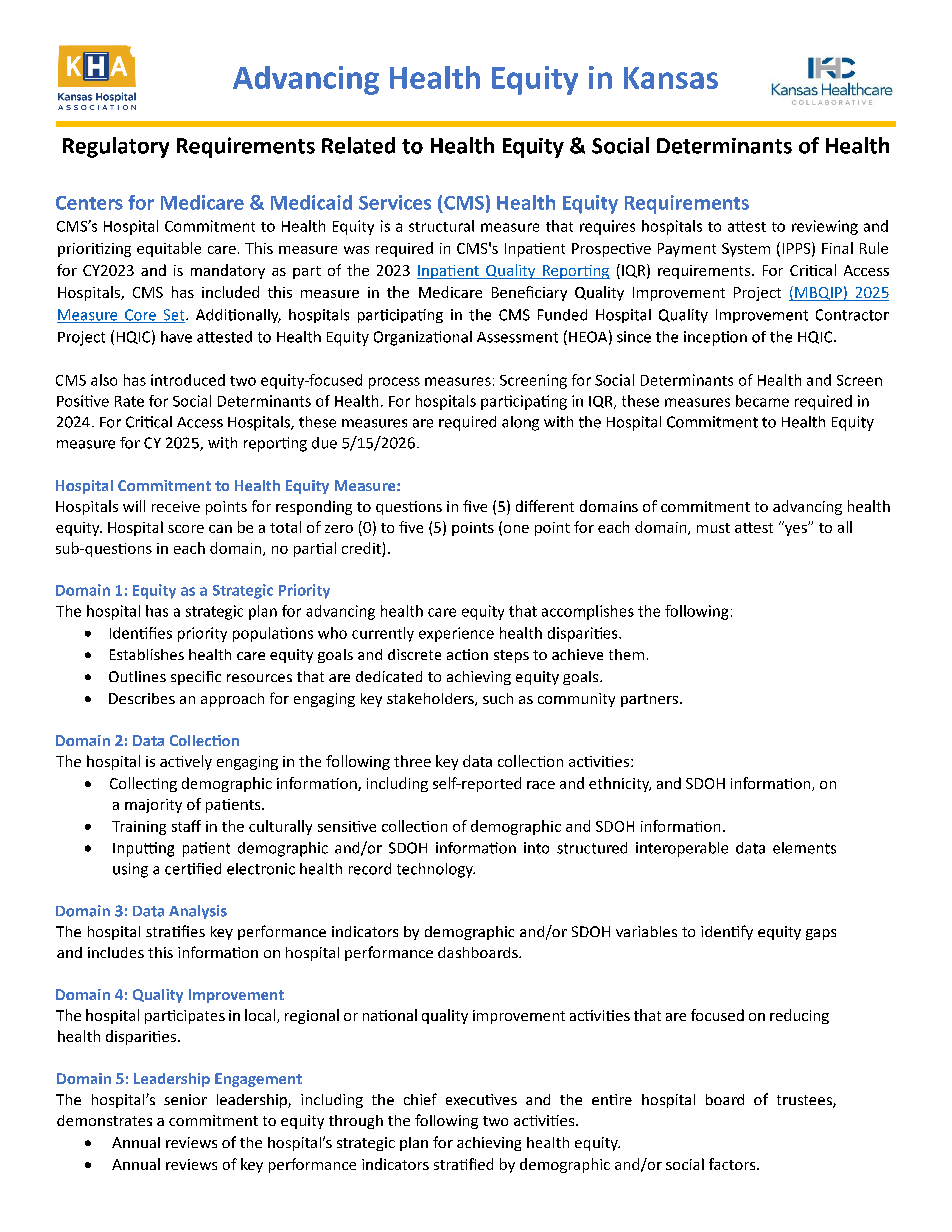health equity
-
Health Equity

Health Equity
It's at the heart of what we do
KHC is committed to centering our work, partnerships and programs in health equity. Health Equity is at the heart of the work we do and the work we hope to do in the future.
Robert Wood Johnson Foundation (RWJF) provides the following definition: “Health equity means that everyone has a fair and just opportunity to be as healthy as possible. This requires removing obstacles to health such as poverty, discrimination, and their consequences, including powerlessness and lack of access to good jobs with fair pay, quality education and housing, safe environments, and health care."

KHC KDHE Community Health Worker Teams Initiative
KHC, in partnership with the Kansas Department of Health and Environment (KDHE), provides hands-on technical assistance to primary care embedded teams of Community Health Workers (CHWs) in Kansas. CHW teams work to provide greater access to COVID 19 prevention and response while addressing chronic diseases and social determinants of health that exacerbate both acute and chronic illness.
Learn More About KHC CHW Teams Initiative

The Centers for Medicare & Medicaid Services requires all hospitals to comply with reporting on health equity commitment and SDOH screenings. To help hospitals educate team members and their boards, the Kansas Healthcare Collaborative and Kansas Hospital Association have developed a regulatory requirements fact sheet outlining these requirements. Additional health equity and SDOH resources may be found on the KHA website.

Download KHA KHC "Regulatory Requirements related to Health Equity and Social Determinants of Health" KHC has offered a number of educational events related to health equity. Visit the Health Equity/Disparities Topic Section of KHC's Education Archive for event recordings and resources related to health equity and SDOH.

KHC and KFMC Health Improvement Partners have a unique partnership that focuses on providing health care professionals, organizations and communities with the knowledge, tools and inspiration they need to address health disparities and foster equitable health care solutions through education, trainings and resources. KFMC’s website hosts a Health Equity Resource Hub developed by multiple Kansas health equity stakeholders providing resources and guidance.
KFMC hosts the annual Kansas Health Equity Summit held each fall. KHC is proud to partner with and participate in the Kansas Health Equity Summit, convening a diverse gathering of health care professionals, policymakers, community leaders, advocates and individuals, all committed to advancing health equity on at both the local and state level.
Other Helpful Health Equity Resources
Robert Wood Johnson Foundation Advancing Health Equity in Rural America Report
Exploring Strategies to Improve Health and Equity in Rural Communities Report
National Rural Health Resource Center Health Equity Toolkit
-
Nemaha Valley Community Hospital Addresses Health Equity in Local Amish Community

In April 2017, church elders from the nearby Amish community met with two physicians and a social worker from Nemaha Valley Community Hospital (NVCH) to discuss concerns about recent poor birth outcomes in both mothers and babies in the local Amish community. A meeting between physicians and church elders to solve health care issues is not the norm in healthcare, but in this case, was the most logical and culturally appropriate means to address an issue, which was vital to both the Amish community and the hospital.
